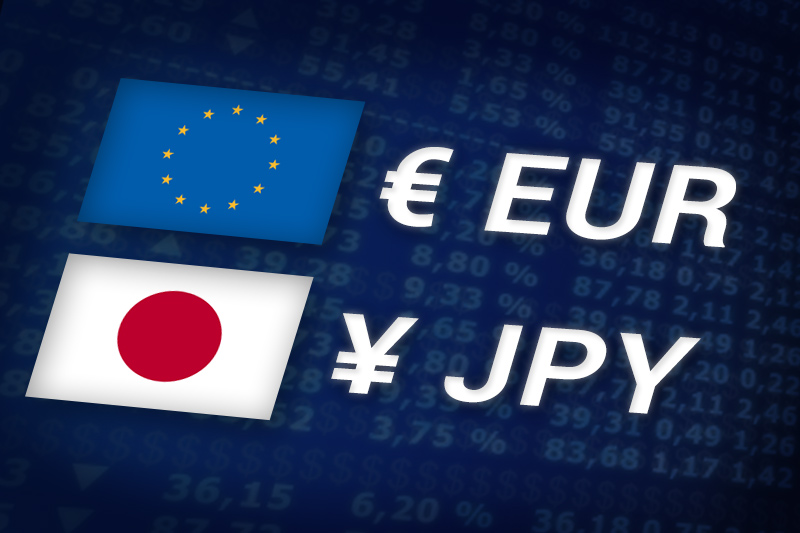Investing.com - The euro was moderately higher against the yen on Tuesday, as mixed U.S. data failed to offer a clear picture of the level of recovery of the country’s housing sector while upbeat economic reports from the euro zone supported demand for the shared currency.
EUR/JPY hit 106.31 during European afternoon trade, the daily high; the pair subsequently consolidated at 105.85, adding 0.16%.
The pair was likely to find support at 105.03, the low of February 21 and resistance at 107.09, the high of April 13.
The U.S. Census Bureau said the number of building permits issued in March rose 4.5% to a seasonally adjusted 0.747 million, the highest level since September 2008, confounding expectations for a modest decline of 0.7% to 0.710 million.
The report also showed that U.S. housing starts fell unexpectedly in March to hit 0.654 million, the lowest level since October, from a revised 0.694 million units in February.
The euro found support earlier after a closely watched auction of Spanish short-term government bonds saw borrowing costs almost double, but the country raised the full targeted amount of EUR3 billion.
Spain’s Treasury sold EUR2.09 billion worth of 12-month government bonds at an average yield of 2.62%, up from 1.41% at a previous auction, and EUR1.09 billion of 18-month bills at an average yield of 2.93%, up from 1.71%.
But investors remained wary of pushing the euro too high as concerns that Spain’s government will not be able to meet deficit reduction targets in the face of a looming recession persisted.
Meanwhile, a report showed that German economic sentiment improved unexpectedly in April, rising for the fifth consecutive month.
The ZEW Centre for Economic Research said that its index of German economic sentiment increased to 23.4 in April from the previous month’s reading of 22.3. Analysts had expected the index to decline to 20.0.
A separate report showed that the rate of consumer price inflation in the single currency bloc was 2.7% in March, up from a preliminary estimate of 2.6% and unchanged from February.
Month-on-month, CPI rose 1.3%, above expectations for a 1.2% increase after rising by 0.5% in February.
Elsewhere, the yen was also lower against the U.S. dollar with USD/JPY rising 0.22%, to hit 80.59.
Earlier Tuesday, Japan pledged to provide USD60 billion to the International Monetary Fund’s effort to expand its lending resources and shield the global economy against the effects of the ongoing debt crisis in the euro zone.
Later in the day, the U.S. was to produce government data on industrial production.
EUR/JPY hit 106.31 during European afternoon trade, the daily high; the pair subsequently consolidated at 105.85, adding 0.16%.
The pair was likely to find support at 105.03, the low of February 21 and resistance at 107.09, the high of April 13.
The U.S. Census Bureau said the number of building permits issued in March rose 4.5% to a seasonally adjusted 0.747 million, the highest level since September 2008, confounding expectations for a modest decline of 0.7% to 0.710 million.
The report also showed that U.S. housing starts fell unexpectedly in March to hit 0.654 million, the lowest level since October, from a revised 0.694 million units in February.
The euro found support earlier after a closely watched auction of Spanish short-term government bonds saw borrowing costs almost double, but the country raised the full targeted amount of EUR3 billion.
Spain’s Treasury sold EUR2.09 billion worth of 12-month government bonds at an average yield of 2.62%, up from 1.41% at a previous auction, and EUR1.09 billion of 18-month bills at an average yield of 2.93%, up from 1.71%.
But investors remained wary of pushing the euro too high as concerns that Spain’s government will not be able to meet deficit reduction targets in the face of a looming recession persisted.
Meanwhile, a report showed that German economic sentiment improved unexpectedly in April, rising for the fifth consecutive month.
The ZEW Centre for Economic Research said that its index of German economic sentiment increased to 23.4 in April from the previous month’s reading of 22.3. Analysts had expected the index to decline to 20.0.
A separate report showed that the rate of consumer price inflation in the single currency bloc was 2.7% in March, up from a preliminary estimate of 2.6% and unchanged from February.
Month-on-month, CPI rose 1.3%, above expectations for a 1.2% increase after rising by 0.5% in February.
Elsewhere, the yen was also lower against the U.S. dollar with USD/JPY rising 0.22%, to hit 80.59.
Earlier Tuesday, Japan pledged to provide USD60 billion to the International Monetary Fund’s effort to expand its lending resources and shield the global economy against the effects of the ongoing debt crisis in the euro zone.
Later in the day, the U.S. was to produce government data on industrial production.
